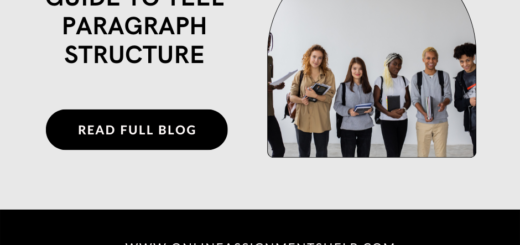How to Maintain Your Academic Voice When Writing Multiple Assignments in Different Subjects
University life isn’t just about attending classes—it’s about writing, rewriting, and sometimes pulling all-nighters to finish assignments. And if you’ve ever had to handle different subjects in the same week, you already know how confusing it can get. One moment you’re working on a History essay, the next you’re buried in a Science lab report, and then you suddenly remember that Business case study due tomorrow.
Here’s the big challenge: how do you keep your academic voice consistent while jumping between such different styles? Because let’s be honest, History doesn’t sound anything like Science, and neither really matches the tone of Business writing.
So, What Exactly Is “Academic Voice”?
People throw this term around a lot, but it’s simpler than it sounds. Academic voice is basically how you present yourself in writing. It’s formal, clear, and evidence-driven. But it’s not robotic.
Think of it this way: you’re not texting your friend, but you’re also not writing like a machine. Your academic voice is the middle ground—it shows that you understand the topic and can explain it professionally.
For example:
- Casual: “World War II was super important because it totally changed everything.”
- Academic voice: “World War II had a profound impact on global politics, reshaping international relations and economic systems.”
See the difference? Same point, but one sounds like a conversation, and the other sounds like something your professor would actually accept.
Why It’s Hard to Switch Between Subjects
The reason students struggle is simple: each discipline has its own “rules.”
- History wants you to analyze sources and debate causes.
- Science wants short, precise sentences and hard evidence.
- Business expects structured, problem–solution writing with examples.
- Literature loves interpretation and deep reading of texts.
Switching between them feels a little like speaking English in one class, French in another, and then trying to do math in between. Your brain gets tired, and your writing can end up all over the place.
How to Keep Your Academic Voice Steady (Without Losing Your Mind)
- Stick to Core Principles
Even though each subject has its quirks, a few rules never change. Be clear. Stay formal (no “LOL” or “btw”). Always back up your points with reliable evidence. And, most importantly, focus on answering the question.
If you keep those basics steady, your writing will always sound academic, no matter the subject.
- Don’t Throw Away Your Style—Just Adjust It
Think of your academic voice like your “default setting.” You don’t have to reinvent yourself for every subject. You just shift the emphasis.
- In Science, you’ll highlight results and data.
- In History, you’ll lean on interpretation and sources.
- In Business, you’ll sound solution-focused and practical.
Your foundation (clarity, professionalism, evidence) doesn’t change. Only the spotlight does.
- Let Structure Guide You
Each subject likes its own “shape” of writing. Once you follow that structure, your tone naturally falls into place.
- Science loves IMRAD (Introduction, Methods, Results, Discussion).
- History usually works best chronologically or thematically.
- Business reports often go Problem → Analysis → Solution.
Think of these as roadmaps. They keep you on track so you don’t lose your voice halfway.
- Watch Your Language Choices
This doesn’t mean English vs. Spanish—it means word choices. Some students jump into casual language when switching subjects, or they overcomplicate sentences. Both can break your voice.
A few quick tips:
- Avoid “I think” or “I feel.” Try “The evidence suggests” or “Research indicates.”
- Use active voice: “The experiment shows” is stronger than “It was shown.”
- Keep technical words where needed, but don’t drown your paper in jargon.
- Read Samples and Borrow the Rhythm
Honestly, the fastest way to adapt to a subject is by reading examples. Past essays, journal articles, or even the sample reports professors share—pay attention to how they sound. You’ll notice that History “flows” differently than Science. Once you catch the rhythm, you can adjust without losing yourself.
- Make Yourself a Quick Checklist
It doesn’t have to be fancy—just a few points on a sticky note. Something like:
- Am I being clear and formal?
- Did I back up every claim with evidence?
- Does my structure match the subject?
- Is this still my voice, not someone else’s?
This tiny check at the end can save you from messy writing.
- Don’t Copy Styles Blindly
It’s tempting to read a Physics journal article and start mimicking its super technical tone. But remember, you’re writing assignments, not publishing in Nature. Keep your work accessible and suited to your level. Borrow the style, don’t clone it.
Example: One Student, Three Subjects
Picture this. You’re working on three assignments:
- History Essay – Topic: The French Revolution.
- You write: “Social inequality and economic hardship were central drivers of revolutionary unrest.”
- Science Report – Topic: Light and plant growth.
- You write: “Plants exposed to red light grew significantly taller than those under blue light, confirming the hypothesis.”
- Business Case Study – Topic: A café’s marketing strategy.
- You write: “Launching a loyalty program could improve customer retention by 15%, based on industry benchmarks.”
Different words, different focus—but your academic voice is steady: clear, formal, and evidence-based.
Why Consistency Matters
Sure, grades are one reason. Professors notice when your writing is inconsistent—it can feel sloppy. But beyond grades, there’s another reason: keeping your academic voice helps build professional skills. Clear communication, logical structure, and steady tone are skills that employers (and honestly, life) will demand later.
And let’s not forget: too much switching can confuse readers. A History paper that suddenly sounds like a science manual is distracting. A consistent voice avoids that.
Extra Tips for Staying Sane
- Switch slowly. Don’t jump from Physics to Literature in one sitting. Give yourself a break in between.
- Use outlines. They keep you focused and prevent tone shifts mid-essay.
- Edit in “subject mode.” Write first, then adjust the tone when editing.
- Ask for feedback. A second set of eyes will tell you if your tone feels off.
Wrapping It Up
Handling multiple assignments across subjects isn’t easy. But your academic voice doesn’t need to vanish just because you’re writing in different disciplines. Think of it as your signature—professional, clear, evidence-backed. You just adapt it slightly to suit each subject.
The more you practice, the easier it gets. Soon, switching between subjects won’t feel like rewriting your personality. It’ll feel natural—because your voice will always be there in the background.
And hey, if the workload feels overwhelming (and it often does), remember that you can always get expert help. For reliable academic support, visit getassignment.com.au.



